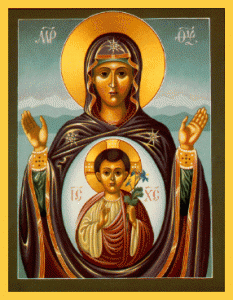 Dear Father John, I am looking forward to Advent and Christmas this year with a little bit of enthusiasm and a lot of anxiety. I know it should be the other way around: a lot of enthusiasm and a little bit of anxiety. What am I doing wrong? How can I reverse the proportion?
Dear Father John, I am looking forward to Advent and Christmas this year with a little bit of enthusiasm and a lot of anxiety. I know it should be the other way around: a lot of enthusiasm and a little bit of anxiety. What am I doing wrong? How can I reverse the proportion?
Progress on the path of holiness requires sincerity with God and sincerity with ourselves. How can we move forward if we aren’t honest with ourselves about the obstacles in our path? Your question shows you are being sincere. That’s good. That’s a reason for you to breathe a sigh of relief —the Holy Spirit is already guiding you from within. He will continue to do so. But since the subtext of your question touches issues that, I am certain, many of our readers are also dealing with, I would like to take two or three posts to address the issue of living Advent well.
Living Advent well requires, in the first place, refreshing our understanding about liturgical seasons in general, and the liturgical meaning of Advent and Christmas in particular.
Why God Invented the Liturgical Seasons
We are not angels. Angels are pure spirit; they live outside the limits of physics and biology. We human beings, though we are indeed spiritual creatures, develop our spiritual capacities in and through material realities. Among those material realities, time and space hold pride of place. And so, when God decided to redeem us, to lead us back into communion with himself after the disaster of original sin, he did so by sending his grace through the media of time and space. And this is still his method. The Church, enlivened and guided by the Holy Spirit, is earth’s spiritual rehab center. It administers the grace we need to recover from sin (original and personal) in doses that reach us through human, not angelic, means. The rhythm of the liturgical seasons arises from this remarkably humble, gentle, and realistic approach to salvation, an approach customized to our spiritual-material nature.
The liturgical seasons, then, are chances for us to receive new graces from God, graces that he puts in the air (so to speak) precisely for us. Each season is like a fresh start, a new opportunity to mature spiritually just a little bit more, as healthy trees mature through the steady and gentle transition of natural seasons. All we have to do to foster this spiritual growth is live each liturgical season with the attention of our heart on the primary aspects of God’s revelation that the season highlights. For Advent, this includes the three comings of Christ: his historical coming two thousand years ago, his present coming in the here-and-now of our lives, and his future coming at the end of history. These events are all interwoven through the liturgical readings, feasts, and traditions of the season. They reveal God’s goodness, wisdom, mercy, and power. They urge us to reform our lives so as to be ready to welcome the Lord. They inspire us to remember the bigger picture of salvation history, even as we stumble through the part of that picture comprised by our daily lives.
Turning our attention to those mysteries involves an attitudinal and a practical adjustment.
Adjusting Our Attitude
Attitudinally, we need to remind ourselves that his Advent is different from every other Advent that we have ever lived, ever. It is different because we are different. In the past year, we have changed. We have another year of life under our belts. Maybe it was a year full of successes, joys, and advances. Maybe it was a year full of failures and sins. Maybe it was a year of suffering and hardship. Whatever happened during the past year, it has affected us. We have more experience, more knowledge, and, we hope, a little more wisdom and a deeper love for God and neighbor. As a result, when we turn our attention once again to Advent, to the three comings of Christ, we will see something new, something different.
Jesus Christ is God. He is infinite beauty, power, goodness, and truth. We can never know him completely. He is an inexhaustible treasury of greatness. Because of our life experience during the past year, we are now ready to discover new facets of this treasure, new levels of meaning, wisdom, strength, and joy. God’s providence has been preparing us over this past year, so that we may now learn things about God and his plan of salvation that he couldn’t show us before, because we weren’t ready. All three of those comings of Christ have the same purpose: to reestablish and deepen our friendship with God. He is looking forward making that happen, to deepening our friendship with him, in these coming weeks of Advent.
Making a Practical Adjustment
Practically, the coming four weeks need to be different. During our daily God-time, the themes of our meditation and spiritual reading should speak to us of Advent. We should make sure to go to confession during these weeks. We should participate actively in some of the parish Advent activities – both the spiritual ones and the apostolic or service-oriented ones. And we should make sure that our family life and our home are brought into synch with the rhythm of the liturgical season. Instead of listing the myriad ways that can happen (decorating the house and yard with Christmas decorations gradually, throughout Advent; having a family Advent Calendar or Jesse Tree; listening to Christmas music starting right away in the first week of Advent; watching favorite Christmas movies as a family every Saturday night of Advent…), I would like to ask our readers to comment on Advent traditions that have been fruitful and helpful for them, so we can have an exchange of ideas. The important point is that we have to express our shift of spiritual attention in some material manifestation, if we want to live the season well. This is why, for instance, the Church changes the colors of vestments and the hymns during Advent.
As you can see, the attitudinal and practical adjustments of Advent don’t have to take a lot of time. They are simply a refocusing of the attention of our hearts. We turn our souls towards the spiritual winds of Advent, to be refreshed by the graces they carry. Having reminded ourselves of the meaning of liturgical seasons in general and the season of Advent in particular, we are ready to address the core of your question: the challenges of Advent, which are the cause of your feelings of anxiety. There are two major difficulties. We’ll tackle them in our next posts, one at a time.
Yours in Christ, Father John Bartunek, LC, ThD


